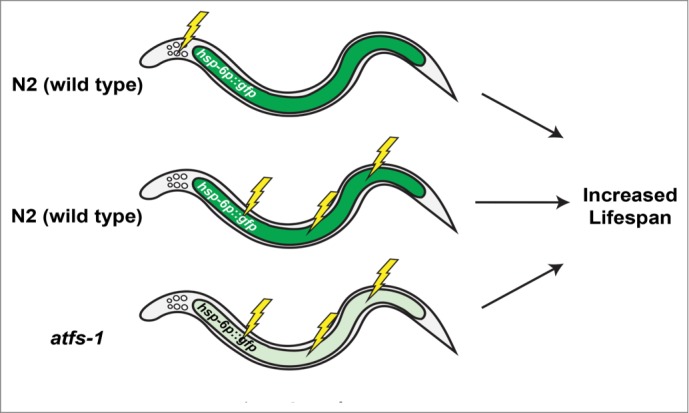Figure 1.

Mitochondrial dysfunction induces the UPRmt in a cell autonomous and non-autonomous fashion, but does not require the UPRmt for longevity. The C. elegans UPRmt can be monitored by the transcriptional upregulation of mitochondrial chaperone genes including hsp-6 and hsp-60. Electron transport chain inhibition by RNAi knockdown of cco-1 (indicated by lightning bolts) in neurons or the intestine is sufficient for lifespan extension in worms and causes obvious induction of the hsp-6p::gfp reporter in intestinal cells (Panels 1 and 2). Loss of function in the UPRmt transcription factor atfs-1 prevents induction of hsp-6p::gfp following cco-1(RNAi) but does not prevent lifespan extension (Panel 3).
